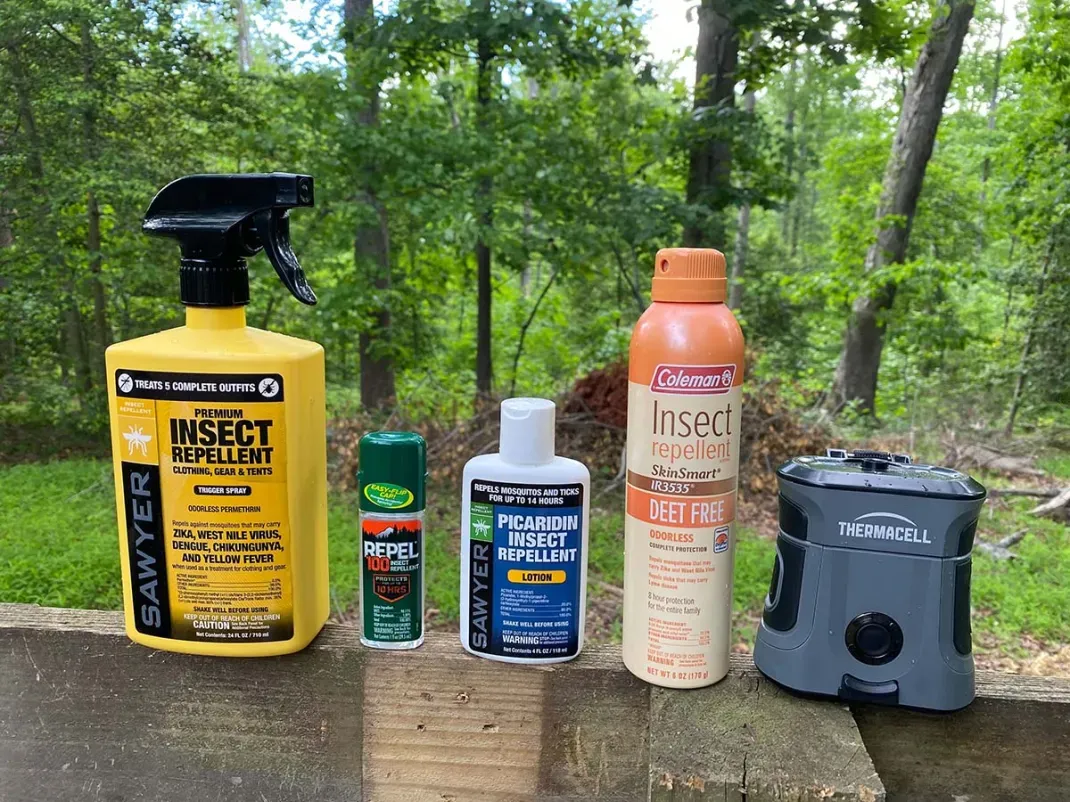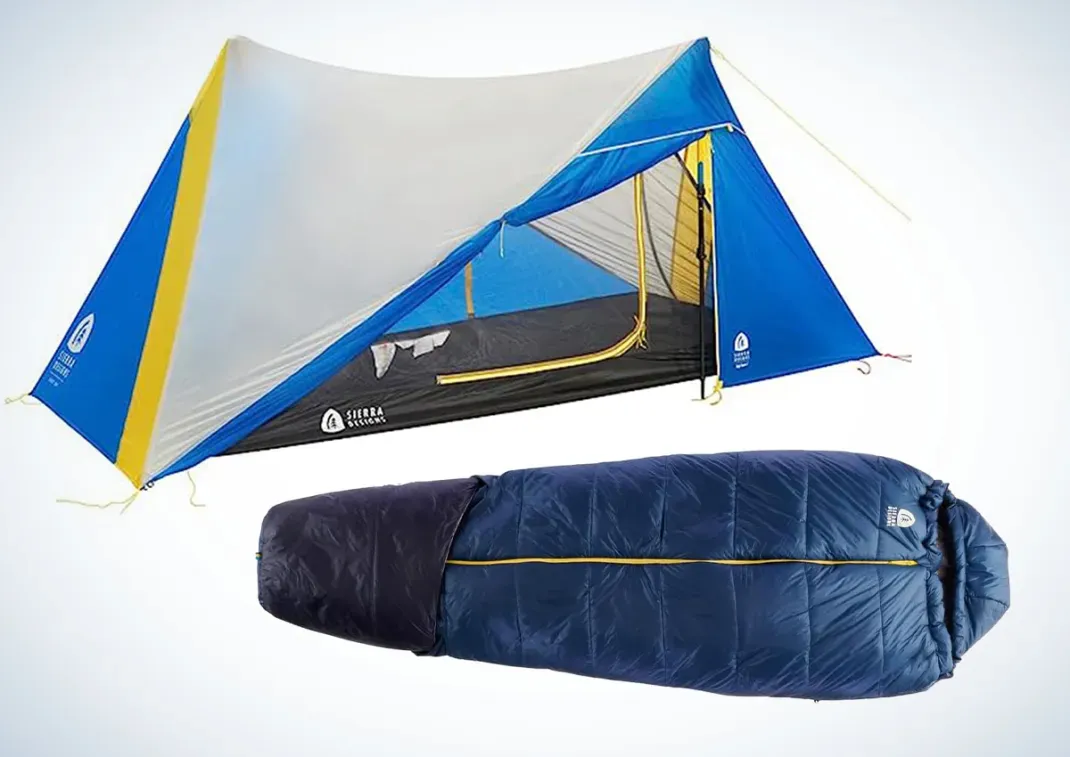The Best Mosquito Repellents for Camping of 2024
When planning a camping trip in 2024, choosing the right mosquito repellent is essential for a comfortable experience. Effective options include a variety of sprays, lotions, and natural alternatives that provide lasting protection against these pesky insects. Look for repellents containing DEET, picaridin, or oil of lemon eucalyptus, as they are proven to ward off mosquitoes effectively. Additionally, consider products that are eco-friendly and suitable for sensitive skin. Many campers appreciate the convenience of repellent wipes and portable devices that offer protection without the mess. With the right repellent, you can enjoy the great outdoors without the annoyance of mosquitoes.

When planning a camping trip, one of the essential considerations is ensuring a comfortable and enjoyable experience in the great outdoors. While many people look forward to connecting with nature, cooking over campfires, and exploring scenic trails, the reality can be disrupted by the persistent presence of mosquitoes. These tiny insects not only cause discomfort with their itchy bites but can also pose health risks by transmitting diseases like West Nile virus, Zika virus, and Lyme disease. As camping enthusiasts gear up for their adventures in 2024, selecting the right mosquito repellent becomes a top priority.
The market for mosquito repellents has evolved significantly in recent years, with a variety of options available that cater to different preferences, skin types, and environmental considerations. Understanding these options can help campers make informed decisions that enhance their outdoor experience while keeping them safe from mosquito bites.
One of the most popular categories of mosquito repellents is DEET-based products. DEET, or N,N-diethyl-meta-toluamide, has been a trusted ingredient in insect repellents for decades. Its effectiveness is well-documented, providing long-lasting protection against mosquitoes and other biting insects. Many campers opt for formulations containing DEET because they can offer protection for several hours, making them ideal for long days spent outdoors. Products with a concentration between 20% and 30% DEET are particularly popular, striking a balance between efficacy and safety for most adults and children over two months old.
For those who prefer a more natural alternative, oil of lemon eucalyptus has gained traction as a plant-based repellent. This oil, derived from the leaves of the lemon eucalyptus tree, has been recognized by the Centers for Disease Control and Prevention as an effective mosquito repellent. Its active ingredient, PMD (para-menthane-3,8-diol), can provide protection comparable to that of DEET, making it an appealing choice for campers seeking a more eco-friendly option. Products containing oil of lemon eucalyptus are often formulated with other plant-based ingredients, offering a pleasant scent while keeping mosquitoes at bay.
Another natural alternative that has garnered attention is citronella. Citronella oil, extracted from the leaves and stems of various species of lemongrass, is commonly used in candles, sprays, and other repellent products. While citronella is less potent than DEET or oil of lemon eucalyptus, it can still provide a moderate level of protection, especially when combined with other essential oils. Campers who prefer a multi-faceted approach might consider using citronella candles around their campsite, creating a barrier that helps deter mosquitoes while enhancing the outdoor ambiance.
For those camping in particularly mosquito-prone areas, a combination of topical repellents and protective clothing can be a game-changer. Insect-repellent clothing, infused with permethrin, offers an additional layer of defense against bites. Permethrin-treated fabrics are designed to repel mosquitoes, ticks, and other insects, allowing campers to enjoy their time outdoors without fear of being swarmed. Campers can find a range of options, from shirts and pants to socks and hats, making it easy to stay protected while enjoying the fresh air.
In addition to topical repellents and clothing, there are also innovative devices designed to repel mosquitoes. Ultrasonic mosquito repellent devices, which emit high-frequency sounds that are said to deter insects, have gained popularity in recent years. While the scientific community remains divided on their effectiveness, many campers appreciate the convenience and ease of use that these devices provide. Some campers also turn to mosquito traps, which attract and capture these pests, further reducing their presence around the campsite.
It's important to note that while repellents can significantly reduce the likelihood of mosquito bites, they are most effective when used in conjunction with other preventive measures. Campers should consider setting up their tents in areas with good airflow, avoiding standing water, and wearing long sleeves and pants, especially during peak mosquito hours at dawn and dusk. Creating a mosquito-free zone can enhance the overall camping experience, allowing outdoor enthusiasts to immerse themselves in nature without the constant annoyance of buzzing insects.
As campers prepare for the summer months of 2024, they should also remain mindful of the environmental impact of the products they choose. Many brands are increasingly focusing on sustainable practices, opting for biodegradable ingredients and eco-friendly packaging. Campers looking to minimize their ecological footprint can find a variety of options that align with their values while still providing effective mosquito protection.
In conclusion, selecting the best mosquito repellent for camping in 2024 involves considering a range of factors, including personal preferences, effectiveness, and environmental impact. Whether opting for a traditional DEET-based product, a natural alternative like oil of lemon eucalyptus or citronella, or embracing innovative technologies, the key is to find a solution that aligns with individual needs. By combining repellents with protective clothing and smart camping practices, outdoor enthusiasts can enjoy their adventures without the persistent nuisance of mosquitoes, creating memorable experiences in the heart of nature. As the camping season approaches, staying informed about the latest products and strategies will ensure that every trip is comfortable, safe, and enjoyable.






